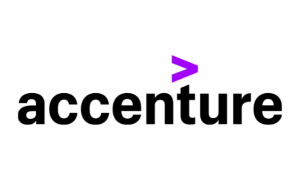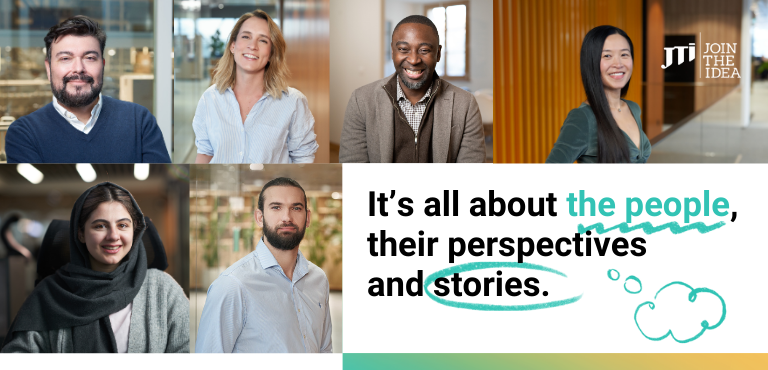
Generative AI (GenAI) is becoming increasingly powerful and prevalent in our daily work. Whether it’s drafting an email with ChatGPT or creating a PowerPoint illustration with Midjourney, our interactions with GenAI are growing. However, with this increased use comes a greater exposure to the applications’ inherent biases, stemming from their input data and response moderation. Therefore, ensuring effective handling of these biases, and thereby promoting inclusivity, becomes ever more important.
We are bringing together experts from the fields of GenAI and inclusion to discuss the intersection of these important topics. Our discussions focus on how GenAI and inclusion should be considered together, who holds the power to influence GenAI alignment, and what steps we can take to make GenAI more inclusive. We aim to foster thought leadership in GenAI inclusion, leveraging our Responsible AI framework and governance structures designed to adapt to rapidly evolving technology.
To bring inclusion to GenAI, we need an active understanding of the technology, its usage, and its challenges. Achieving this understanding requires regular knowledge exchange between GenAI practitioners, users, and inclusion experts. By building on common ground, we can ensure that GenAI is used responsibly and fairly, even as the technology continues to advance. The collaborative approach, paired with progressive governance frameworks, is essential for fostering long-term inclusivity in GenAI.
This Best Practice was first published in the Gender Intelligence Report 2024.
As generative AI (GenAI) integrates into daily workflows, several challenges emerge in ensuring diversity and inclusion:
Unclear Moderation Authority: Moderation techniques are algorithms, prompts, or filters that are used to control which output is generated by a model. There is no clear consensus on who should have the power to moderate GenAI systems. The ambiguity can result in the inadequate protection of those underrepresented in the development community or training data. This leads to inadequate handling of biases. For example, a GenAI Model provider was criticized when their models created images of, e.g., a black female pope (Fig. 1). While trying to push for diversity, they returned historical inaccuracies.
Scarcity of Training Data: As training data becomes scarce, the need for effective moderation increases. Limited data can lead to models that do not accurately represent diverse populations, further amplifying existing biases and making it harder to produce fair and inclusive outputs.
OpenAI has reportedly fed its GPT models with all available content on the internet. With the need to ingest data from further sources, the quality of intake will deteriorate.
Across Accenture and within our Market Unit (Austria, Switzerland, Germany), we identified the need to make our colleagues aware of these challenges to foster an equitable use of GenAI, both in their work and when advising clients on the use of GenAI.
As part of our training and enablement approach, we dedicated our yearly Diversity Day to spark awareness for the intersections of GenAI and diversity. Our aim was to raise our colleagues’ attention to the factors that influence the responses given by a GenAI system and how they can leverage their position as users and implementers of GenAI systems to ensure diversity. We also aimed to connect colleagues with expert knowledge in AI models with more nascent users to enrich learning.
Accenture has also developed its own Responsible AI framework (Fig. 2), equally relevant for GenAI, that focuses on Soundness, Transparency, Fairness, Privacy, Sustainability, Robustness, Accountability, Liability, and Compliance. All AI applications developed by Accenture should comply with these principles. By raising awareness for the RAI and the governance structures required to control it, we set out to advance the use of AI in a way that complies with our own standards.

Figure 2: Responsible AI framework
During the Diversity Day workshop, Accenture’s GenAI experts presented insights into how GenAI systems operate and how there are three essential levers when tuning the systems for responsibility: training data, moderation, and reinforcement (Fig. 3). The attendees could learn that where the training data changes the base assumptions of the model, the moderation controls the allowed inputs and outputs, and the reinforcement layer collects feedback from users. These were then compared to an overview of Accenture’s holistic Responsible AI Framework.
After the infusion by our expert, the workshop participants were divided into groups to experiment with different GenAI platforms give them hands on experiments with methods to align their GenAI outputs with principles of diversity and inclusion. Such workshop sessions complement our continuous training program on GenAI and explicitly foster ethics, cultural and responsible considerations.

Figure 3: Influences on GenAI output
“During the workshop, I connected with our Data Science experts to gain a better understanding of how moderation affects the models’ output.”
The workshop was a great opportunity for our colleagues to interact with GenAI in an intentional way that led to stronger understanding of GenAI itself and the factors that influence its output.
Participants reported that they had a better understanding of the interaction between GenAI and diversity and inclusion and started sharing strategies with each other to enhance how we deliver GenAI products to our clients.
These effects can be observed companywide through our trainings and offerings surrounding GenAI that feature the importance of implementing AI responsibly to protect the users from harmful or biased content originating from the power imbalances stemming from the GenAI ecosystem.
For more information about this Best Practice, reach out to the author:
Johannes Halkenhäusser
Data Science Analyst
j.halkenhaeusser@accenture.com

Teena Babu-Kurisinkal
Responsible AI Specialist
t.babu-kurisinkal@accenture.com

Angelika Schmid
Lead of the Sustainability & AI Squad Europe
angelika.a.schmid@accenture.com


ABB Switzerland is transitioning from traditional “Disability Management” to a strength-based “Ability Management” approach in health promotion. The company aims to significantly reduce absenteeism. Related targets will be integrated into leadership performance assessments. Through initiatives like the Icebreaker campaign, which encourages open dialogue about mental health challenges, ABB has already achieved measurable improvements in psychological safety and employees’ sense of belonging.

Swiss Re launched the Career Returnees initiative in July 2024 to tap into the underutilized talent pool of professionals returning to work after career breaks, recognizing that traditional recruitment often overlooks this experienced group. The program is built on four pillars: open positions for returnees, equal pay for equal work, development opportunities and flexible work options, with explicit career returnee advertising, internal awareness and a manager support toolkit, and external outreach campaigns. Since launch, the initiative has welcomed over 62 employees across 12 countries, with 92% onboarding satisfaction and 82% upskilling satisfaction, demonstrating that career breaks occur across all genders and career stages while returnees integrate quickly and deliver effectively.

MSD Switzerland implemented a Global Job Policy in 2024 requiring all roles to be posted and introduced a structured selection processes with panel interviews to address inconsistent recruitment practices and employee concerns about unequal opportunities. The company developed competency frameworks, behavioral interview techniques, and neurodiversity-accessible assessments to counter unconscious bias and ensure fair candidate evaluation. These inclusive recruitment practices have increased diversity in hiring decisions, improved employee engagement scores, and strengthened organizational culture with better business outcomes.

dsm-firmenich launched the Mental Fitness Champions (MFC) initiative following a merger to support employee well-being during organizational transformation, training colleagues to listen to and support peers. The Global Vitality Office partnered with HSE Global to deliver a customized 7-hour peer support program based on a Canadian Armed Forces framework, training internal instructors and offering courses in six languages across 36 countries. Since launching in April 2024, the initiative has engaged 500+ colleagues in 60+ courses, with 95 certified champions in Switzerland alone, creating a peer-support network that promotes psychological safety, reduces mental health stigma, and fosters an inclusive workplace culture.

SBB established "OneSBB Meeting Points" as leadership dialogues focusing on "Value Diversity Respectfully," where around 1,000 leaders voluntarily participate in groups of 30 to discuss diversity, unconscious biases, and inclusion through peer-to-peer learning. The initiative runs from April to October 2025, featuring discussions led by top executives covering individual perspectives (bias awareness), team perspectives (case studies), and organizational benefits of diversity and inclusion. The program aims to enhance leaders' reflective abilities, foster empathy, reduce discrimination, and develop skills in conflict resolution and leading diverse teams, with outcomes evaluated through participant feedback.

Alpiq launched a leadership transformation program centered on "Secure Base Leadership" to drive cultural change in the volatile global energy market, where culture serves as a key competitive advantage. Starting with the Executive Board and cascading through the organization, the program focuses on Care, Dare, and Share philosophy, training internal ambassadors as IMD-certified coaches to foster inclusive leadership, psychological safety, and diverse perspectives. The initiative has already trained one-third of Alpiq's workforce, resulting in significant improvements including NPS scores rising from +1 in 2022 to +42 by 2024, Great Place to Work certification across all locations, and inclusivity questions ranking in the top 5 survey results.

Job sharing was introduced at Nestlé Switzerland in 2020, and after some initial challenges in factories, it was successfully implemented at Nestlé Waters Switzerland in May 2023. This initiative helped retain a valuable engineer by offering a reduced activity rate. It resulted in the company's first job-sharing arrangement in a factory setting with two engineers working at 60% capacity each. The positive outcomes have led to more job sharing pairs in factories across Switzerland, with a focus on continuous improvement and flexibility.

As a global organization, JTI had established several policies to support the DEI agenda and were in the process of being certified by the EY Global Equality Standard. However, they recognized the need for a more localized implementation that met the specific needs of the organization at the time. By focusing on inclusion, raising awareness around bias, and introducing initiatives like the Virtual Reality „Men in Business – In the Body of a Woman“ experience, they have started to see positive changes in conversations, employee engagement, and inclusive management across the organization.

The new parental leave policy offers 16 weeks of fully paid leave to all employees regardless of gender, supporting natural, adoptive, same/opposite sex partners, and single parents. The policy has been well-received by employees, fostering equity and inclusion, supporting the transition to parenthood, and contributing to improved retention and engagement.

Unlock financial savviness with Zurich Insurance as they empower women to enhance their financial knowledge and skills. Explore the WIN Financial Awareness Program, fostering a supportive community and providing personalized services to boost financial confidence.

Experience KPMG's commitment to empowering employees through flexibility and work-life integration. Discover their diverse initiatives challenging traditional norms and supporting new parents, fostering a thriving workplace for all.

Involving employees pays off - learn what happens when the entire workforce sets the agenda for gender parity.